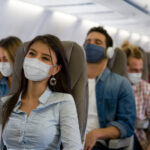FBI Phoenix advises those planning to travel to be vigilant of their surroundings and use caution during spring break. If traveling out of the country, the FBI warns of increased dangers of international travel, including crime, theft, fraud, and kidnapping.
As a first step in planning any trip abroad, check the travel advisories for your intended destination. The travel advisory system was designed to give U.S. citizens timely, clear, and reliable information regarding security threats abroad.
Many Arizonans travel down to Mexico to enjoy Spring Break. While the majority travel safely, visitors should consider the following factors when planning their vacation or traveling throughout Mexico:
- Crime: Crime, including violent crime, can occur anywhere in Mexico, including in popular tourist destinations. Travelers should maintain a high level of situational awareness, avoid areas where illicit activities occur, and promptly depart from potentially dangerous situations. See the Mexico Travel Advisory for specific information for each Mexican state. U.S. citizens should exercise increased caution in the downtown areas of Cancun, Playa Del Carmen, and Tulum after dark.
- Drugs: Drug possession and use, including medical marijuana, is illegal in Mexico and may result in a lengthy jail sentence. U.S. citizens have become seriously ill or died in Mexico after using synthetic drugs or adulterated prescription pills.
- Unregulated Alcohol: U.S. citizens have reported losing consciousness or becoming injured after consuming alcohol that was possibly unregulated.
- Sexual Assault: U.S. citizens have been victims of rape and sexual assault in some resort areas. Perpetrators may target inebriated or isolated individuals or may employ drugs that alter the victim’s physical or mental state.
- Drowning: Some beaches have strong undercurrents and rip tides. Beaches may lack lifeguards, warnings, or signs of unsafe conditions.
- Medical Emergencies: An illness or accident could result in the need to seek medical treatment or hospitalization in Mexico. Private hospital prices can be higher than those in the United States. Many facilities require payment (sometimes only in cash) either before providing treatment or before discharging a patient.
- Guns and Ammunition: All guns and even small amounts of ammunition are illegal in Mexico and may result in lengthy jail time.
- Arrests: Drunk and disorderly behavior, public urination, and open alcohol containers in vehicles are illegal in Mexico. If you break Mexican law, you can be arrested.
- Immigration: Violating the terms of your stay in Mexico can result in steep fines and detention.
The following are helpful tips to feel more secure while traveling internationally:
- Enroll your trip in the State Department’s Smart Traveler Enrollment Program to receive up-to-date information on safety conditions in Mexico and to help the U.S. Embassy contact you in an emergency.
- Call 911 in an emergency. Although there may be English-speaking operators available, it is best to seek the assistance of a Spanish speaker to place the call.
- Make sure your health insurance plan provides coverage in Mexico or purchase travel insurance that covers you in Mexico. Seek coverage that includes medical evacuation. Confirm costs of medical treatment in advance, when possible.
- Check the CDC’s Travelers’ Health information for Mexico and the Embassy webpage on COVID-19 for up to date information about health risks and conditions in Mexico.
- Avoid strong currents and do not swim after drinking or when warning flags note unsafe conditions.
- Drink responsibly and always watch your drink. If you begin to feel ill, seek medical attention immediately. Report cases of unregulated alcohol to the Mexican Federal Commission for the Protection against Sanitary Risk (COFEPRIS) via email at [email protected], file a report online via the COFEPRIS website, call the COFEPRIS call center at +52 (55) 5080-5200, or visit a COFEPRIS office to report.
- Know your drinking companions and stay in a group of friends who have your safety in mind when you are in clubs and bars, out walking in dimly lit areas, or in a taxi at night. Obey Mexican law and remember Mexican laws may differ from U.S. laws.
- Regularly monitor your credit or debit card accounts to ensure there are no unauthorized transactions. Limit the amount of cash you carry in public, exercise caution when withdrawing cash, and avoid ATMs in isolated or unlit areas.
- Be aware of your safety and protect your personal possessions when using public transportation. Use radio taxis or those from “sitio” taxi stands. Application-based car services such as Uber and Cabify are available in many Mexican cities, and generally offer another relatively safe alternative to taxis.
- Keep your friends and family back home informed of your travel plans, especially if traveling alone.
- Consider downloading the “Guest Assist” application on your smart phone if traveling to Cancun, Playa del Carmen, Tulum, or Cozumel. The Mexican government provides information on emergency services and assistance for tourists via app and their website.
- Keep your passport and entry permit (Forma Migratoria Múltiple or FMM) in a safe place. Confirm the date you must depart Mexico.
- Contact the nearest U.S. Embassy or Consulate if you need assistance.
Before finalizing plans, the FBI suggests you review the health and security alert issued by the U.S. Embassy & Consulates in Mexico last week: https://mx.usembassy.gov/health-and-security-alert-spring-break-2022/
Click here to view travel advisories for multiple countries.
Click here for the current travel advisory for Mexico.
Click here for more information on virtual kidnapping for ransom scams and how you can protect yourself.








